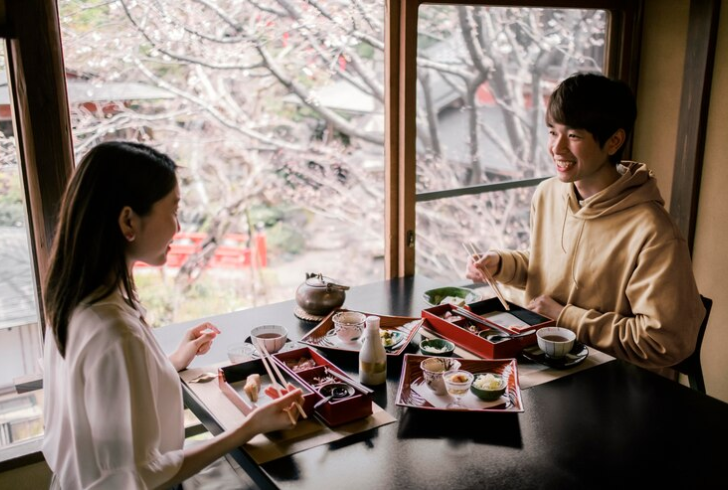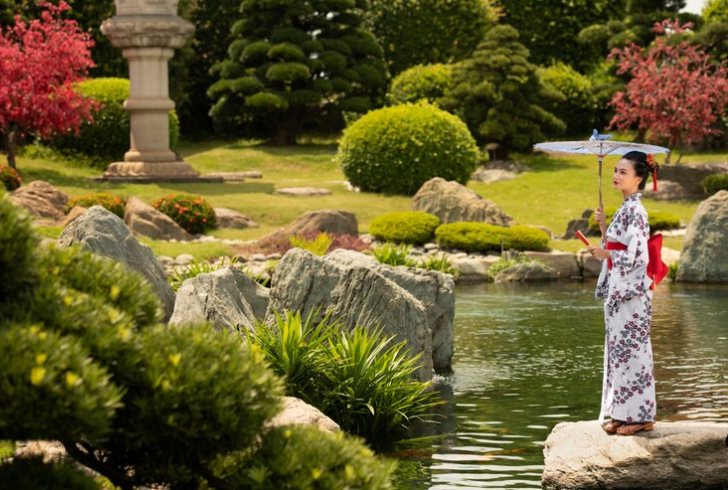3 Japanese Principles That Inspire a Happy and Fulfilled Life
Happiness isn’t always loud or grand. It’s often found in the quiet rhythms of daily life, in the way we connect with others, and in the subtle moments that ask us to slow down and look closer. While many cultures lean on personal achievements or material success to define happiness, Japanese wisdom offers a more grounded and collective perspective.
A Different View of Happiness
In many parts of the world, happiness is seen as something to build alone, through self-improvement, ambition, and personal growth. But in Japan, happiness leans more toward connection and shared experience. This cultural approach emphasizes emotional balance, calmness, and valuing the ordinary.
According to psychologist Yukiko Uchida, who has researched happiness across cultures, the Japanese understanding places greater weight on social harmony than individual success. “In our culture, personal accomplishments matter, but the deeper happiness often comes from how we relate to others and the world around us,” she explains. “Our strength is limited when we only depend on ourselves.”
Why Interdependence Matters

Freepik | Japanese people find peace through nature and meaningful bonds with others.
Japan’s collective mindset is partly shaped by its history. Natural disasters have repeatedly shown the importance of working together and being prepared for uncertainty. This has influenced how communities function, prioritizing social responsibility and mutual care.
During events like the 2011 earthquake and tsunami, Uchida observed how deeply connected people were. Despite the widespread grief, individuals found comfort in small acts of support and shared humanity. This kind of emotional resilience, shaped by long-standing cultural values, reveals how important it is to build relationships that go beyond the surface.
The Everyday Joy of Ordinary Life
One of the most powerful aspects of Japanese thinking on happiness is its focus on stability and appreciation of the everyday.
– A warm cup of tea.
– An honest conversation.
– A walk beneath a blue sky.
These small details aren’t overlooked; they’re the very foundation of a meaningful life. In Japanese culture, the term heibun na jinsei refers to a “balanced life.” It’s about cherishing the routine rather than constantly seeking peak moments or achievements.
Uchida found in her studies that while Western workers often link happiness at work to status and recognition, Japanese employees highlighted emotional balance and simple daily satisfaction.
Japanese Concepts That Shape a Good Life
Let’s take a closer look at three cultural ideas that help shape this refreshing approach to happiness.
1. Omoiyari
Omoiyari is the art of understanding and responding to others’ needs, without them having to ask. It’s more than empathy. It’s an intuitive awareness that guides how people relate to one another in Japanese culture.
“It’s not just about kindness; it’s about noticing what others may need even before they say it,” Uchida says. This concept also applies inward. Extending the same gentle attention to your own needs is just as important.
In a world where people often feel pressured to keep going, omoiyari reminds us to pause, consider others, and also be kind to ourselves.
2. Wabi-Sabi

Freepik | Wabi-sabi guides us to see beauty in the imperfect moments of daily life.
Wabi-sabi is about valuing imperfections. It encourages appreciation for things as they are—aged, flawed, or incomplete. From worn-out ceramics to fading flowers, it celebrates authenticity over perfection.
Uchida reflects, “Wabi-sabi is not about chasing constant joy. It teaches us to recognize the quiet satisfaction in ordinary, even boring moments.”
This mindset invites us to release the pressure of needing everything to be perfect before we can feel content.
3. Ichi-go Ichi-e
The phrase ichi-go ichi-e means “one time, one meeting.” Rooted in Japanese tea ceremonies, it’s the idea that every encounter is unique and will never be repeated exactly the same.
How would your daily experiences change if you treated each moment like a rare event? This concept reminds us to be fully present—to bring awareness and gratitude to the people and places that fill our lives.
Living With Gentle Anticipation
These ideas aren’t isolated to Japan. They echo across time and cultures—from Stoic principles to spiritual teachings about gratitude and simplicity. But Japanese culture puts them into daily practice in a quiet, consistent way.
There’s even a term, koi no yokan, which describes the sense of knowing love is about to happen. It’s not dramatic or overwhelming—it’s a calm recognition of joy approaching.
Applying these insights can help anyone—no matter where they live—build a life that’s more fulfilling, patient, and emotionally rich.
So maybe happiness isn’t something we chase. Maybe it’s something we begin to see more clearly when we slow down, pay attention, and stay open to the simple, beautiful patterns of everyday life.